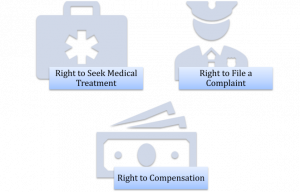This post is also available in: हिन्दी (Hindi)
Any person who:
- gives or
- takes dowry, and
- anyone who helps in the exchange of dowry.
can be punished under the law.
For Example
Raj(groom) and Simran(bride) are getting married. Simran’s father, Amrish gives Rs. 10 lakh and a car as dowry to Raj’s father Anupam.
Scenario 1: When the broker is involved: If the exchange is facilitated through Yash, who is a broker, and Amrish files a complaint, then both Anupam and Yash can be punished under this law.
Scenario 2: When the groom is involved: If Raj is involved in the discussions of demanding dowry, then he will also be prosecuted if a complaint if filed.
Scenario 3: When the complaint is made by someone else: In case the complaint is made by someone else, or it comes to the knowledge of the authorities that an exchange of dowry has taken place, then all three parties i.e. Anupam, Yash and Amrish can be punished. If Raj was also involved in the discussions, then he can also be punished.
The punishment can be jail time for a minimum of 5 years. If the amount is below 15,000 then the fine will be Rs. 15,000. However, if the fine is more than Rs. 15,000 then the fine is equal to the amount of dowry exchanged. For example, if the dowry amount is 30,00,000, then the fine will be Rs. 30,00,000.

